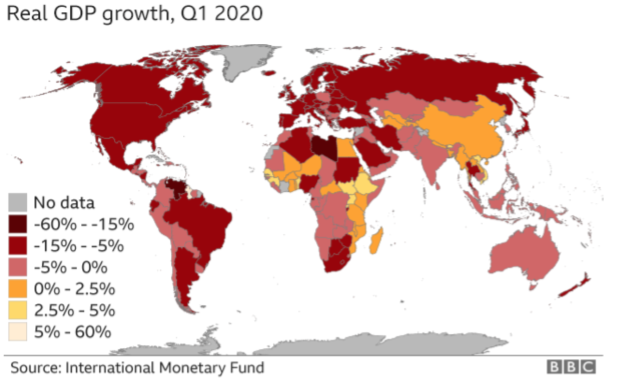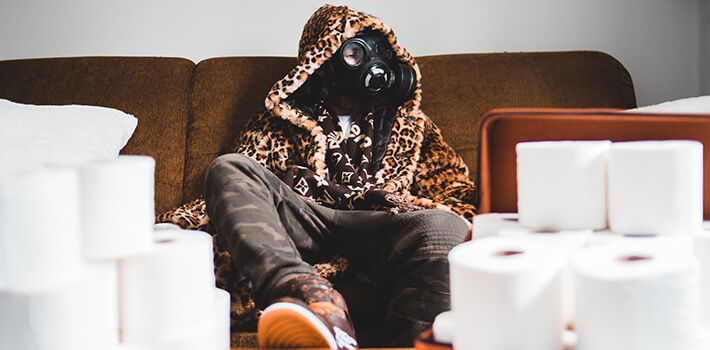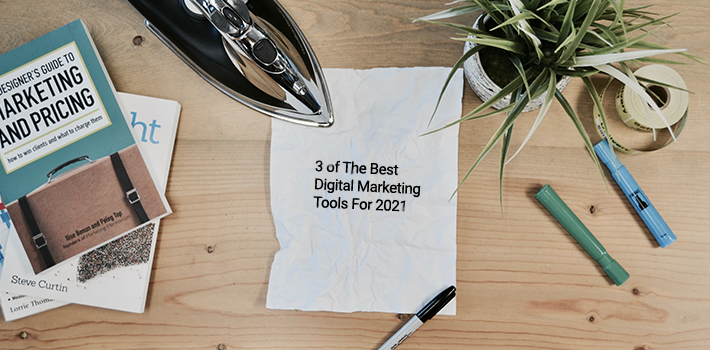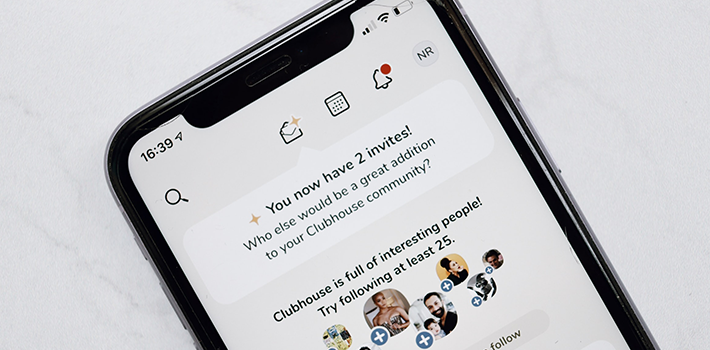Bill Gates says we could “end this thing” by 2021.
And that’s only if the best COVID-19 vaccines, when they eventually do come out, are made available across the world.
Otherwise, according to good old Bill, the virus will just keep coming back.
Yet another morsel of 2020-grade good news, we know.

But here’s the thing: whether you’re of the school of thought that he created the whole COVID fiasco to collect data and inject microchips, or whether you just appreciate all the work his foundation has put in for the cause, I think we can all agree that he seems to know a lot more about this virus than most.
So with his gloomy projections in mind, what does all this mean for the global economy? And, more specifically, what does it mean for us marketers?
One thing’s for sure: a whole bunch more uncertainty awaits us, and we need to know how to deal with it.
What’s Changed?
Well, to put it simply, everything.
Coronavirus has turned life as we know it upside down. It has changed everything from the values we hold dear to how we see the world.
The COVID-19 crisis has made us completely reevaluate what we deem important in life and the things we consider to be priorities.
As a result, it’s changed the way we spend our money, or more importantly, whether we choose to spend it at all.
Considering our job as marketers is to sell things to people and get them to care enough about our brand to invest their time and money in it, this puts us in an unprecedented position.
How do we convince people that we still fit within their priorities?
How do we get them to care about us when there’s so much more to care about in the world right now?
Today, we aren’t just battling our competitors. We’re fighting to stay relevant in a dystopian COVID-dominated reality.
It’s All About Consumer Sentiment
We’re not going to rehash the extensive economic impact COVID-19 has had on the world. We all know it’s bad.
But just to give you a visual representation of the situation, here’s a graphic from the IMF via the BBC, depicting the number of countries around the world that are on the brink of recession.

The bottom line? People are scared.
People are unemployed, they’re stressed out and they’re unsure what their income levels are going to look like for the foreseeable future. It’s no shocker that their desire to spend their hard-earned money has significantly declined.
As McKinsey puts it, COVID-19 will shape consumer behavior for “years to come”.
So, if we’re going to respond to the crisis strategically, we as marketers and “advocates for the consumer”, need to have a deep understanding of consumer sentiment during every single stage of the pandemic.
We can’t control how uncertain consumers feel about the economy, nor can we predict how the virus will develop in the future.
But what we can control is how much we know our customers. Now, more than ever, we need to understand who our customers are, what their financial situation is, and where their priorities lie.
And we need to accept that all of this can change overnight, depending on the way the pandemic is panning out.
The Importance of Messaging
If we’re going to be in tune with what consumers are thinking and feeling, we need to make sure we demonstrate that.
It’s no good advertising luxury trips around the world or big wedding parties that no one can attend.
People are tired and they don’t have time for our BS. That means brands can’t just continue with business as usual, running tone-deaf campaigns that are offensively flippant or shockingly oblivious to the current situation.
We may no longer be opening every conversation with comparisons of COVID cases around the world, but the virus still very much dominates daily life.
Everything we do needs to reflect clear respect for and acknowledgement of the current situation. It’s already been shown that consumers trust brands that have demonstrated an active awareness of the crisis versus those that have not.
In fact, they’ve gone a step further and opted to switch to brands that have shown a more proactive response to the pandemic in the form of money pledged to COVID-related causes and measures taken to protect their employees.
It may seem obvious, but we need to connect to our consumers on a human level and empathize. We can’t just act like none of it is happening and hope they don’t notice.

Adaptability
Just like the virus made us question everything on a personal level, so too must it be with our marketing strategies.
Everything we once held as an incontestable fact may no longer be true given the abnormal circumstances.
We need to go back to the drawing board and be prepared to change everything according to what our consumers, the latest COVID developments, and the market, tell us is necessary.
The virus is a strange phenomenon in that it has entirely robbed us of our ability to make plans for the future, both on a personal, and a business level. So it’s no use holding onto old strategies and hoping the world will go back to normal.
It won’t. We just need to learn how to roll with the punches.
Already, so much has changed. Everything’s moved online, from schooling to working to buying groceries.
And you don’t have to take my word for it, just look at the numbers.
Zoom made $185.7 million in Q2 of this year, compared to $5.5m in Q2 of 2019. That’s a 355% increase!
Meanwhile, Jeff Bezos doubled his already outrageous profits and raked in $5.2 billion in Q2 of 2020 alone, while Exxonmobil posted historic losses that broke every record ever set.
2020: the year where a previously unpopular video-conferencing program can become an overnight necessity, rendering the oil industry in its entirety irrelevant.

It’s a weird time to be alive.
But just like ASOS started selling hand-sanitizer, Uber Eats incorporated no contact delivery and Lululemon launched yoga sessions via a mobile app, your brand must be ready to adapt.
Meet consumers where they are and find out ways to make their lives convenient.
After all, that’s why Bezos’ pockets keep getting fatter. It’s also why 88% of online consumers have switched brands during the quarantine period (and are likely to stick with them) because of what they’ve done to make the online experience convenient.
Optimization
Test, test, and then test some more.
Things are changing so quickly, too quickly. And we need to be able to react before too much money is wasted.
Rapid testing must become the new norm. It’s the only way to save money, meet consumer demands, and stay ahead of the competition.
We also need to keep communication open with our users. We need to hear their concerns, consistently research their behaviors, and optimize our advertising channels, purchasing funnels, and website experiences accordingly.
Retail sales are on the rise around the world right now, which means consumer sentiment is picking up.
This isn’t the time to stubbornly stick to vanity campaigns that won’t resonate with consumers. If anything, now is when marketing teams must take a ruthless approach to channels that aren’t performing as well as they should or are proving to have become obsolete.
Do not be afraid of the chopping block. While you may find that you’re spending less or funding uncharted territory, at least you’ll be spending smart.
What Lies Ahead
Bill says we’re in for a rough fall and winter. Which means we don’t know when there could be a second wave (or third? What number are we on?)
But, as it stands right now, we could see a return of lockdown measures at any given moment.
That said, vaccines are on their way, as is the holiday season. And according to Rakkuten, 87% of the world’s population isn’t planning on spending less over Christmas.
So who knows. It’s all impossible to predict. But we, as marketers, must remain vigilant and up to date with the latest COVID developments and their impact on consumer sentiment.
So long as we’re fully optimized, have a couple of contingency plans in our arsenal, and are open to re-imagining our strategies, we’ll make it out the other side of this pandemic stronger, wiser, and much more resilient.





